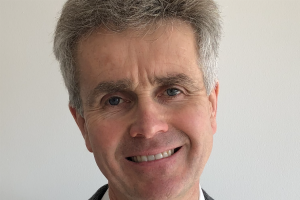
Anyone who has suffered from loneliness, or social isolation, will know it is a situation that seems impossible to overcome, leading to depression and low self-esteem. For patients, this can be a vicious circle that prevents them making any positive moves to help themselves.
The national strategy to deal with loneliness, recently launched by Tracey Crouch MP, should be welcomed, but one area to highlight and investigate is loneliness caused by some medical conditions.
Leg ulcers, for example, are a hugely stigmatised condition involving lengthy healing times, extreme pain, lack of mobility and social isolation, not just because of pain in walking but also the embarrassment caused by the odour from the wound. Once active and sociable, patients may cut themselves off from friends and family, stop attending functions or regular meetings and spiral into loneliness and depression. The condition is life-changing.
Traditional models of care are not normally conducive to tackling social isolation. Purely clinically focused, the home-bound are treated by district nurses and those who can reach the surgery do so for an appointment that can take anywhere between 30 to 60 minutes. It is a costly and inefficient way to treat patients, some of whom have wounds that can take up to two years to heal. The cost to the NHS to treat more than 700,000 a year is £5.3 billion, more than the £5.0 billion that is currently being channelled into tackling obesity. Lord Hunt has already highlighted in parliament the need for change and for a national strategy to deal with wound care.
Social factors and isolation can significantly affect how leg ulcer patients respond to treatment
In 2015 our practice made the biggest transformational change to a service that I have seen in 25 years. By taking on the ‘Leg Club’ model and providing care in community settings such as church halls, with expert treatment from practice and district nurses, the lives of many of our patients have been transformed.
Clinical evidence shows that social factors and isolation can significantly affect how leg ulcer patients respond to treatment. Healing rates were greatly improved with some patients finding their ulcers that normally took a couple of years to heal were healed within three to six months.
Gradually, the numbers at each session increased. The socially isolated became volunteers, they made new friends who had been through the same challenges they had, they attended the weekly sessions for a coffee and a catch up, even if they no longer needed treatment for their legs.
Some of them found a new focus, fundraising for this much needed community facility. In fact, enough money was raised to cover the cost of hiring a minibus which is used to pick up patients who are home-bound and would normally be treated by a district nurse.
Leg Clubs are an initiative started by former district nurse Ellie Lindsay and are a psychosocial model which sees patients treated by nurses in non-clinical environments in concordance with strict clinical guidelines. They empower members to take control of their own conditions, giving them treatment as well as preventative advice while giving the opportunity to meet others in their situation. It is a model that tackles loneliness head on as well as helping to address a £5.3 billion annual cost.
There were challenges setting it up, for example finding the right location, somewhere with storage – and eventually finding somewhere bigger when it grew out of its existing location.
However, it has all been a huge team effort. Primary care nurses are now working side by side with community district nurses, sharing experience and information. It is about sharing a vision, removing stigma and giving these patients a whole new lease of life.
Dr Patrick Seal is executive partner at the Adam Practice in Poole, Dorset
Pulse October survey
Take our July 2025 survey to potentially win £1.000 worth of tokens




 Oviva’s fully remote Tier 3 Weight Management programme
Oviva’s fully remote Tier 3 Weight Management programme







